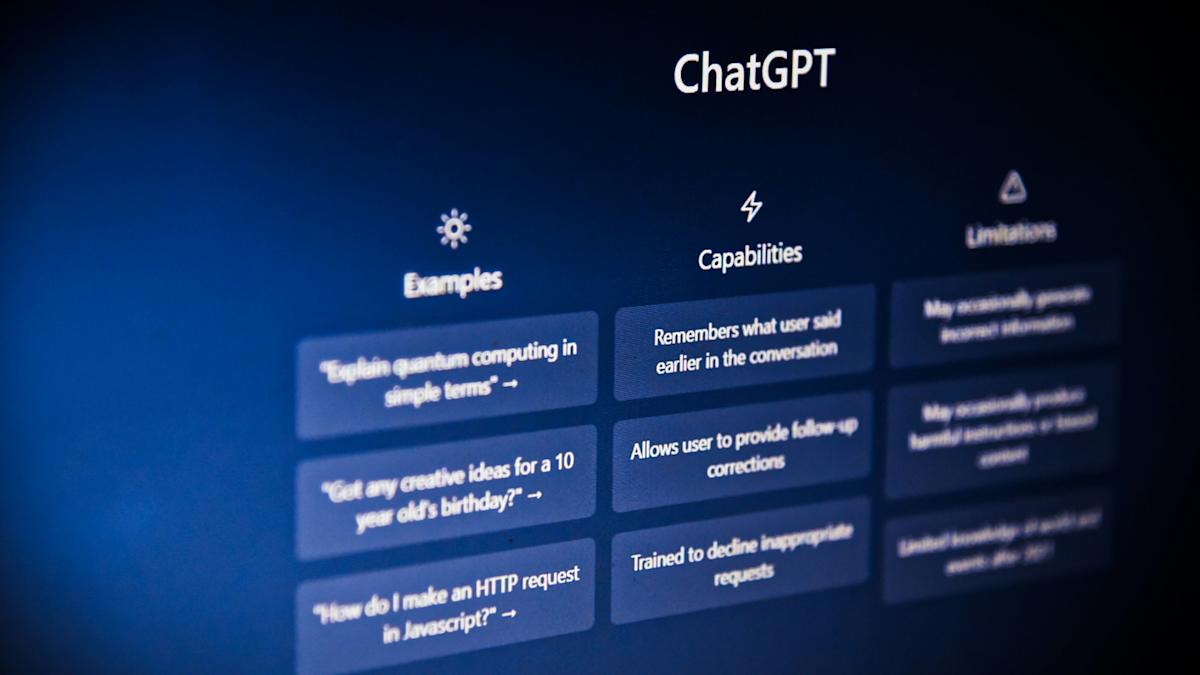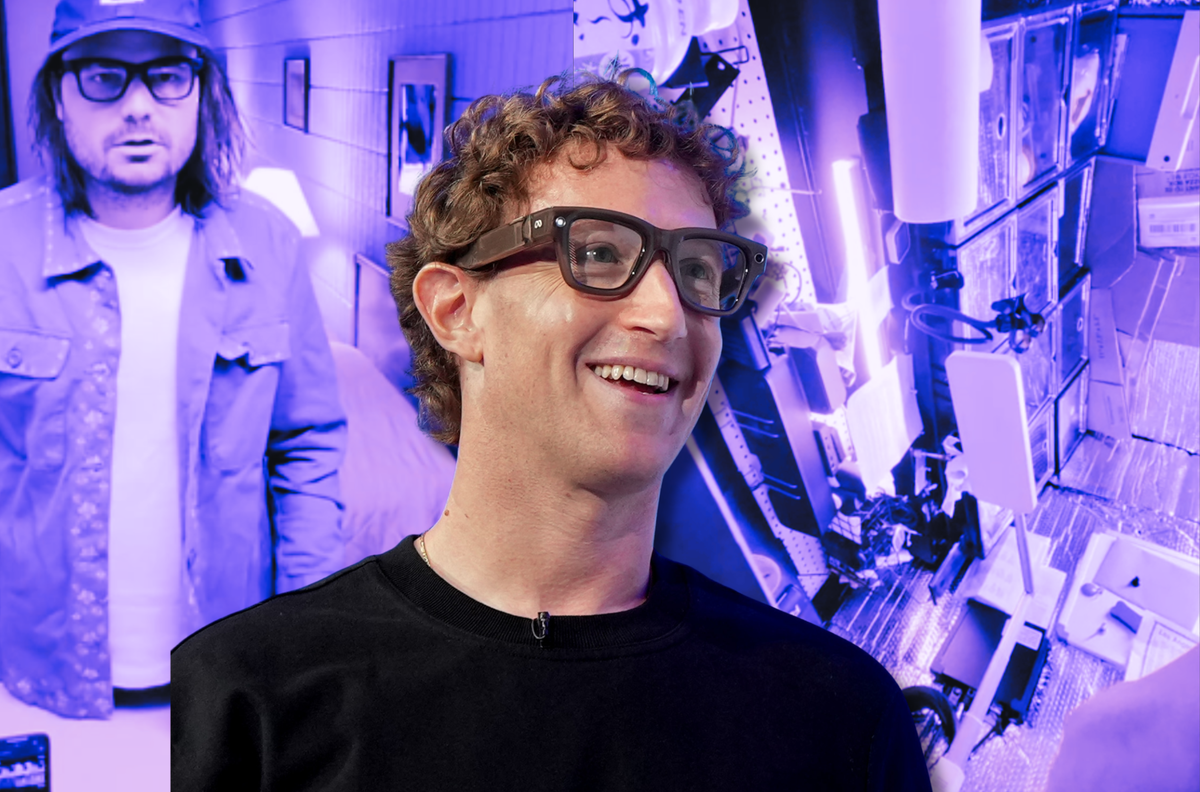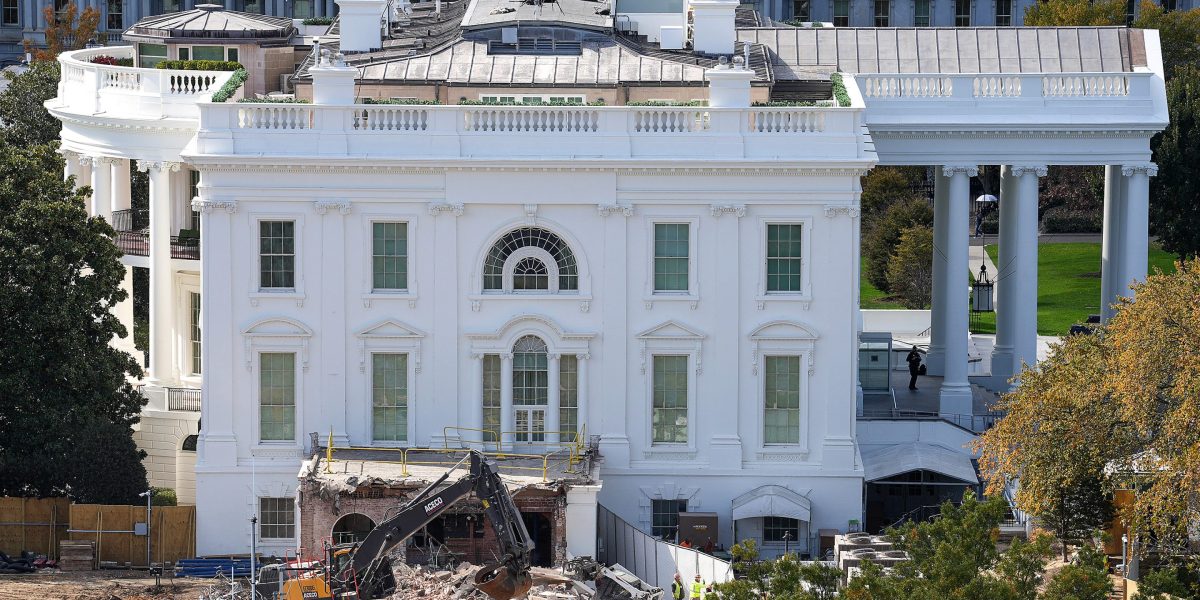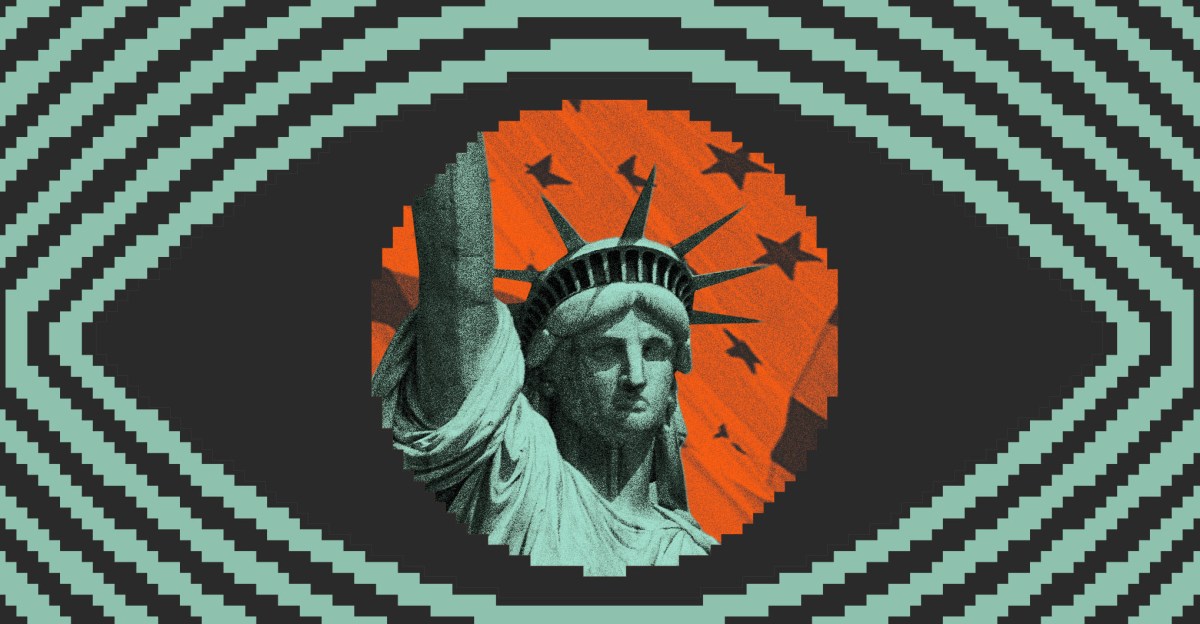Big Tech Lobbying Breaks Records, Amazon Breaks the Internet, and Trump Breaks the White House
This week in The Dispatch we’re covering Big Tech’s record lobbying operation in Congress, Amazon’s AWS breaks the web, Meta’s own research proving Meta harms kids…again, and Trump demolishes the White House to party with tech CEOs.

Welcome back to The Dispatch from The Tech Oversight Project, your weekly updates on all things tech accountability. Follow us on Twitter at @Tech_Oversight and @techoversight.bsky.social on Bluesky.

🗳️ CONGRESS (LIMITED EDITION, WHILE SUPPLIES LAST): Ahead of the 2026 elections, Big Tech isn’t just lobbying — it’s campaigning. A new report by Issue One shows how Big Tech is flooding Washington with lobbyists, bankrolling super PACs, and positioning 2026 as the year it locks in immunity. The goal is simple — preempt real oversight by manipulating lawmakers.
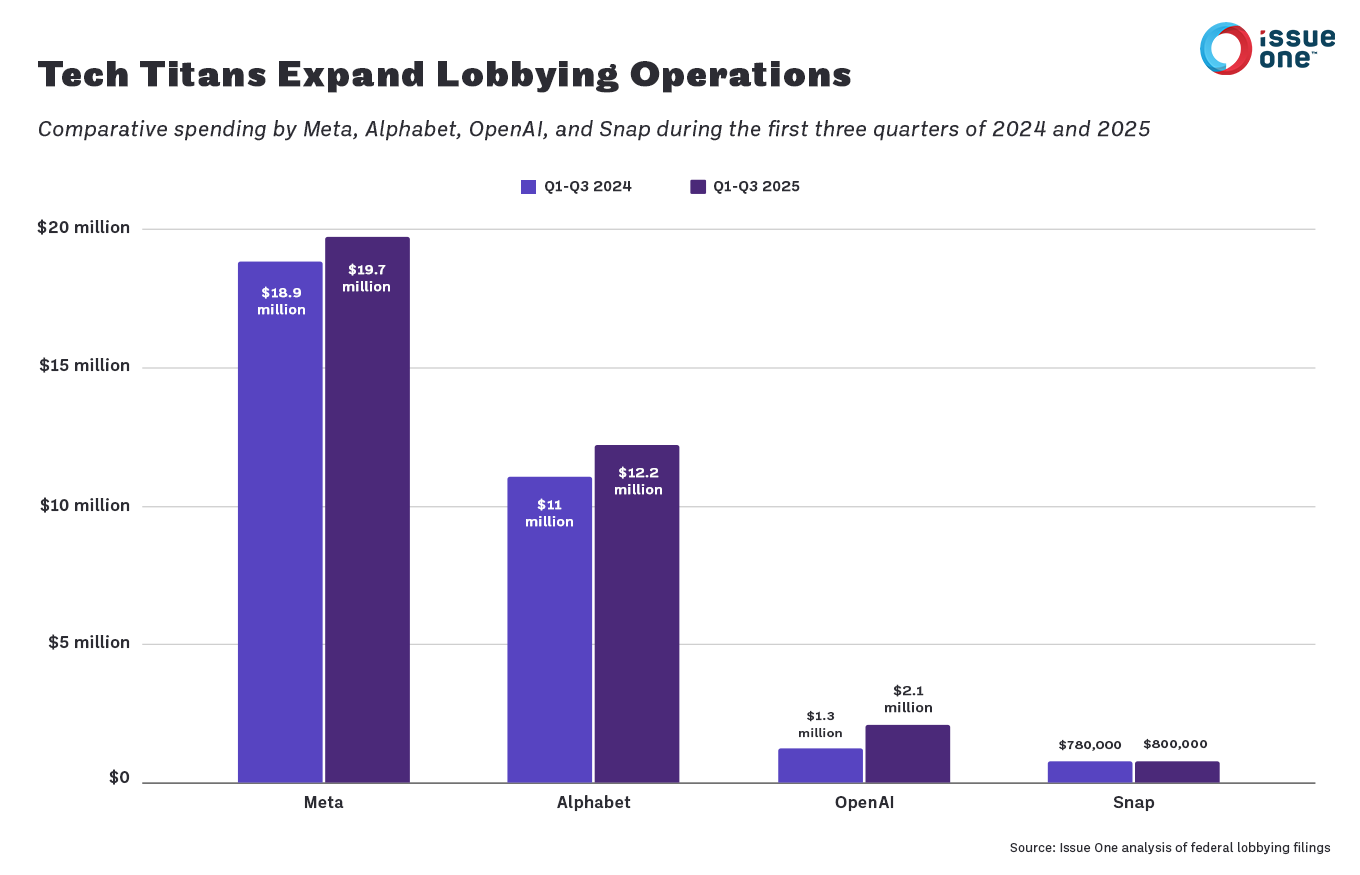
Their financial lobbying footprint is massive:
- $36 million spent on lobbying in the first half of 2025 — about $320,000 for every day Congress was in session.
- $19.7 million in lobbying from Meta alone — its highest total ever, with 87 lobbyists on retainer — roughly one for every six members of Congress.
- Nearly 300 lobbyists working for the top eight Big Tech companies: Google, Meta, Microsoft, Amazon, Nvidia, OpenAI, TikTok, and Snap. That’s one for every 2 members of Congress.
- $100 million for Leading the Future, a16z and OpenAI’s dark money PAC built to boost candidates willing to carry Big Tech’s water while opposing any guardrails to rein them in.
- Tens of millions through two different Meta super PACS — Mobilizing Economic Transformation Across California and the American Technology Excellence Project to fight AI laws nationwide.
The money isn’t about winning a policy argument — it’s about making sure the argument never happens. It’s control by redundancy: lobby the law, fund the lawmakers, and rewrite the record through paid research and “innovation” panels that quote each other.
Issue One’s Broken Promises project reads like a case file: years of public contrition paired with private immunity deals. Big Tech doesn’t want oversight; it wants exemption — to exist above the laws that govern every other major industry.
When Congress killed the industry-backed 10-year AI moratorium in a 99–1 vote, Big Tech’s response wasn’t to change course. It was to escalate — to try to purchase the conditions under which future tech policy gets written: who chairs the committees, which bills get hearings, and whether “guardrails” still mean anything by the time they reach markup. Because Big Tech CEOs believe they should answer to no one.

🔌 ALEXA, TURN ON THE INTERNET: When Amazon Web Services (AWS) crashed last week, it triggered the world’s biggest ever internet blackout. The internet didn’t just slow — it collapsed. Bank transactions failed, grocery deliveries froze, rideshare apps stalled mid-route, and hospital systems and emergency alerts flickered offline. One internal glitch at Amazon broke the backbone of daily life — a reminder that a single company now holds the uptime of the modern world.
“Because the actual servers are consolidated under a handful of companies, so are the potential points of failure—not to mention the profits,” writes Will Gottsegen in The Atlantic. “A business that doesn’t rely on Amazon for its services might still be entwined with another business that does.”
That’s the real danger of Amazon’s monopoly: not just its size, but its role as the hidden scaffolding of the digital economy. The same company that sells groceries, runs a global marketplace, and powers its own streaming empire also props up the infrastructure that competitors, agencies, and small businesses depend on. The crash made clear that “cloud computing” isn’t the neutral utility it pretends to be — it’s corporate dependency at planetary scale.
As Senator Elizabeth Warren wrote, “If a company can break the entire internet, they are too big. Period.” She’s right. But the problem isn’t just that Amazon is too big — it’s that governments have let it become indispensable. When a monopoly also becomes infrastructure, we’re the ones who inherit the single point of failure.

🏗️ MOVE FAST AND BREAK THE EAST WING: A few weeks ago, we wrote about how Big Tech CEOs were dining at the White House to celebrate Trump’s renovation of the Rose Garden — because apparently the new ritual for Big Tech accountability is a ribbon cutting — and how Google’s $24.5 million YouTube settlement somehow turned into a down payment on Trump’s new ballroom. A proud moment for innovation in corruption.
Now, literal demolition of the White House has commenced. Trump’s “legacy project” is a ballroom the size of an Amazon fulfillment center — financed by the same companies his administration is supposed to regulate. Naturally, Google, Meta, Amazon and Palantir all chipped in.
“Big Tech CEOs have bought themselves a seat at Trump’s table, and they’re paying for the renovation of that table with multi-million-dollar checks. Make no mistake about what’s happening: Apple, Meta, Amazon, and Google are bankrolling pageantry and luxury for an administration that’s making a mockery of ethical standards and policymaking for the people. These companies have chosen their side, and it’s not ours – these companies and their political enablers must be held accountable for abandoning privacy, civil liberties, and democratic oversight in exchange for cash and favors,” said The Tech Oversight Project’s Executive Director, Sacha Haworth.
The money is being funneled through a nonprofit meant for the National Mall — because nothing says “public service” like laundering a bribe through park restoration. It’s a desecration of one of the country’s few enduring symbols of public service — gutted to make room for a monument to private power.

👑 ROYALS, RADICALS, AND ROBOTS: More than 800 public figures — from ex–tech executives and government officials to Steve Bannon, Glenn Beck, and Prince Harry and Meghan Markle — have signed a new letter calling for a pause on “superintelligent” AI.
The mix of names reads like a group chat gone wrong, but it shows how fast the fear of runaway AI has gone mainstream. The same companies once praised for “democratizing” technology are now uniting skeptics across every possible divide — left, right, royal, and radical — around the idea that Silicon Valley can’t be trusted to police itself.

😱 META RESEARCHES META, SHOCKED TO FIND META: In a twist that should surprise absolutely no one, Meta’s own researchers confirmed what parents, pediatricians, and anyone with an internet connection already knows — Instagram is serving teens content that makes them feel worse. The company’s internal research found that teens who reported feeling bad about their bodies saw three times more eating disorder–adjacent content than their peers.
That content — defined by Meta as posts showing “prominent display of body shapes or sexualized body parts,” “judgment or comparison of body types,” and “extreme diet or fitness messaging” — made up over 10% of what those teens saw on the platform. Among their peers, it was just 3%. The same group also saw nearly double the “suffering,” “risky behavior,” and “harm & cruelty” content as everyone else.
Meta failed to detect 98.5% of the “sensitive” material its own researchers flagged as potentially harmful to teens. The team didn’t mince words: the “swath of content” harming teens isn’t caught by Meta’s integrity systems at all.
In a statement, Meta spokesperson Andy Stone said the report demonstrates the company’s “commitment to understanding and improving” teen safety. Translation: Meta is congratulating itself for studying the harm it profits from.
This is the same company now facing lawsuits from dozens of states and school districts for designing platforms that addict and endanger children. Meanwhile, lawmakers are still fighting to pass the Kids Online Safety Act, a bipartisan effort to hold Big Tech accountable for amplifying content that harms minors. If Meta’s latest “we’ll do better” statement sounds familiar, it’s because it’s the exact same thing they said after the last scandal. And the one before that. And the one before that.

🗞️ AI ACCELERATES LOCAL NEWS DESERTS: A new Northwestern report shows the U.S. lost another 136 newspapers this year — nearly a third of all papers have vanished since 2005. In that time, local ad revenue collapsed, daily circulation cratered from 50 million to 15 million, and web traffic to major outlets fell 45%.
It’s not just changing reader habits. Big Tech platforms siphoned off local audiences and ad dollars, then buried community news in algorithmic dead zones. Facebook’s own decision to down-rank news has gutted local reach, while AI-driven aggregators now recycle journalism without paying for it.
When a few companies control how information circulates and profit from content they didn’t produce, democracy gets thinner. “News deserts” are spreading across the country, and what’s left behind isn’t a free press — it’s a feed.

